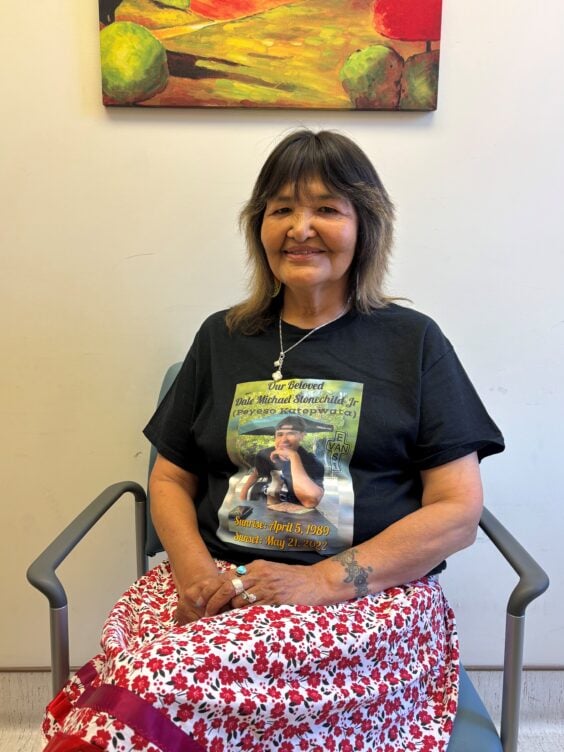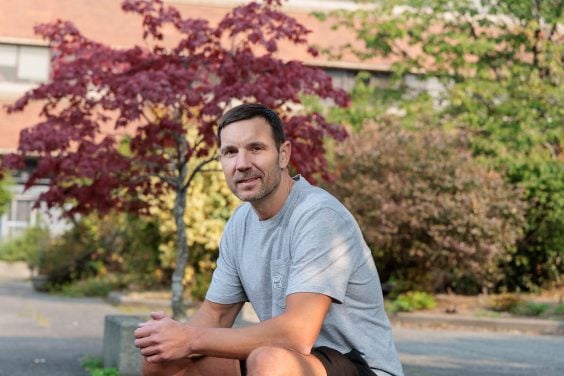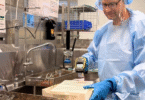As we mark International Overdose Awareness Day on August 31, we’re spotlighting the powerful role of Peer Support Workers at Providence Health Care (Providence)—individuals who bring lived experience, empathy, and advocacy into the heart of our health system.
For those considering a career in health care that’s grounded in purpose and community, peer support work at Providence offers a unique opportunity to make a meaningful impact.
We spoke with Ian Haynes, Peer Support Worker Team Lead, about what makes this work so transformative, for patients, for peers, and for the future of care.
A pathway to purpose
Ian leads a team of 25 peers across multiple Providence sites, including those at RainCity and the Overdose Prevention Site (OPS). Many join the team with limited experience, but what they bring is invaluable: lived experience, resilience, and a deep understanding of what it means to navigate the health system from the margins.
“Watching peers grow is the best part of my job,” Ian shares. “They come in newer to recovery, unsure of their place and over time, you see them take pride in their work, build strong relationships, and even move into leadership roles. It’s life changing.”

Support that goes beyond the frontline
Peer support work is more than a job, it’s a calling. Ian’s role includes practical guidance—scheduling, pay systems, vacation planning—but also emotional support.
“Hospitals can be overwhelming. I make sure peers feel supported, especially when the work gets heavy. We’re not just helping patients; we’re helping each other heal.”
Providence is also working to create structures that support peers in every unit, ensuring they’re not just placed, but truly integrated.
“We’re reimagining systems that weren’t built with peers in mind. It’s about pushing back and saying: we can do this better.”
Innovation in harm reduction
Providence’s peer-led OPS program on the 4th floor of Vancouver’s St. Paul’s Hospital is a model of what compassionate, community-informed care can look like.
“Peers help patients stay engaged in their care. They build trust, offer social support, and create a sense of belonging. Since the safe inhalation site opened, overdoses in the garden have dropped by 60 per cent.”
This kind of impact is what makes Providence’s approach stand out—not just in Vancouver, but across North America.
A culture of inclusion and growth
Peer Support Workers are vital members of interdisciplinary teams. They bridge communication gaps, translate medical language, and advocate for patients in ways that are accessible and empowering.
“Peers need feedback and inclusion. When they’re part of decision-making and receive recognition, they feel valued and that’s when they thrive.”
For those considering peer work, Ian offers honest advice:
“Lived experience is essential, but so are boundaries and self-awareness. If the work is triggering, it might not be the right time. But if you’re ready, it can be incredibly rewarding.”
A community that cares
The toxic drug crisis has deeply affected Ian and his community. But amidst the grief, he finds hope in the people he works with.
“I’ve lost count of how many friends I’ve buried. But I’m still here, because I believe in this work. I’m inspired by my colleagues, especially those without lived experience who still show up with compassion. In a world that often turns away, they choose to care.”
Join us in making a difference
At Providence, we believe in meeting people where they’re at, in building trust through lived experience, and in creating space for healing and growth.
Whether you’re exploring peer support work or looking to join a health care organization that values inclusion, innovation, and heart, there’s a place for you here.
“To my team: you’re amazing. You bring your whole selves to this work, and it shows. I’m proud to walk alongside you,” says Ian.
Visit our website for more information on Peer Support Services or explore current career opportunities at www.careers.providencehealthcare.org.
Story by Jessica Collins, Digital Recruitment Marketing Specialist





